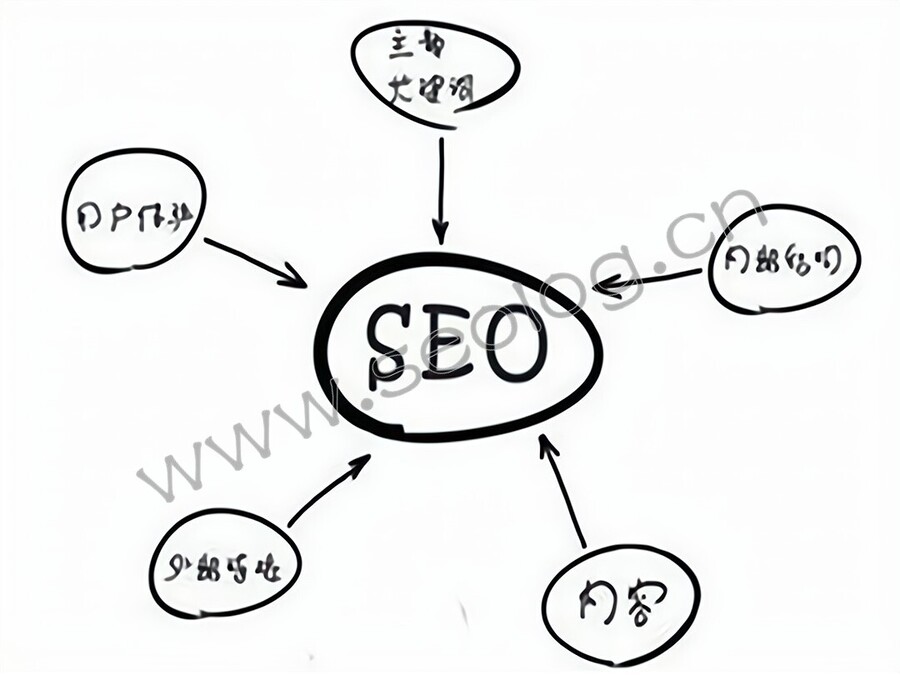Understanding the Importance of Google Optimization for English Websites
As an SEO optimization engineer, it's crucial to understand the significance of optimizing English websites for Google. With billions of searches conducted daily, ranking highly in Google's search engine results pages (SERPs) is essential for businesses looking to attract global traffic and increase their online presence.
Google's algorithm is designed to provide users with the most relevant and high-quality content for their queries. By optimizing an English website for Google, businesses can ensure that their content is easily discoverable, which can lead to increased organic traffic and improved brand visibility.
Effective Google optimization also involves adhering to best practices that enhance user experience, such as fast loading times, mobile-friendliness, and secure browsing. These factors not only satisfy Google's ranking criteria but also contribute to a positive user experience, which is essential for retaining visitors and encouraging them to engage with the content.
Keyword Research and SEO Strategy
The first step in optimizing an English website for Google is conducting thorough keyword research. This involves identifying relevant keywords and phrases that potential users are likely to search for. Tools like Google Keyword Planner, SEMrush, and Ahrefs can be used to find these keywords, taking into account search volume, competition, and relevance.
Once the keywords are identified, an SEO strategy should be developed. This strategy should include on-page optimization techniques such as optimizing title tags, meta descriptions, headers, and content to include the targeted keywords. Off-page optimization, such as building backlinks from authoritative websites, is also crucial for improving search rankings.
It's important to note that keyword research and strategy are not one-time activities. They should be continuously monitored and updated to reflect changes in search trends and user behavior.
On-Page SEO Elements
On-page SEO elements play a critical role in Google's ranking algorithm. These elements include the use of relevant keywords in key areas such as title tags, meta descriptions, headers, and throughout the content. Each page should have a unique title tag and meta description that accurately reflect the content and include the targeted keywords.
Headers (H1, H2, H3, etc.) should be used to structure the content and make it more readable. The H1 tag should contain the primary keyword, while secondary headers can include related terms. Additionally, ensuring that images are optimized with descriptive file names and alt tags can also improve accessibility and SEO.
Another important on-page element is the URL structure. A clear and descriptive URL that includes keywords can help users and search engines understand the content of the page. It's also essential to ensure that the website has a logical hierarchy and that pages are easily navigable.

Off-Page SEO and Backlinks
Off-page SEO focuses on activities that take place outside of the website itself to improve its ranking. One of the most significant off-page SEO factors is the quality and quantity of backlinks. Backlinks from reputable and relevant websites signal to Google that your content is valuable and authoritative.
Strategies for building backlinks include guest blogging, creating shareable content, and engaging with industry influencers. It's important to avoid low-quality backlinks, as these can negatively impact a website's ranking and reputation.
Monitoring backlink profiles and analyzing the link-building strategies of competitors can also provide valuable insights into effective link-building tactics.
Technical SEO for English Websites
Technical SEO involves optimizing the website's infrastructure and coding to ensure it is crawlable and indexable by search engines. This includes optimizing site speed, ensuring mobile-friendliness, and creating a sitemap and robots.txt file.
Site speed is a critical ranking factor, and optimizing images, leveraging browser caching, and minimizing HTTP requests can significantly improve load times. Ensuring the website is responsive and provides a good user experience on mobile devices is also essential, as Google now uses mobile-first indexing.
Implementing structured data markup can help search engines understand the content and context of a page, leading to enhanced search results and potentially improved click-through rates.
Monitoring and Analytics
Once an English website has been optimized for Google, it's important to monitor its performance and make continuous improvements. Utilizing tools like Google Analytics and Google Search Console can provide valuable insights into website traffic, user behavior, and search rankings.
Regularly reviewing keyword rankings, traffic sources, and conversion rates can help identify areas for improvement. It's also crucial to stay updated on the latest Google algorithm changes and best practices, as SEO is an ever-evolving field.
By continuously monitoring and adjusting the SEO strategy, businesses can maintain and improve their search engine rankings, driving more targeted traffic to their website and achieving their online goals.








